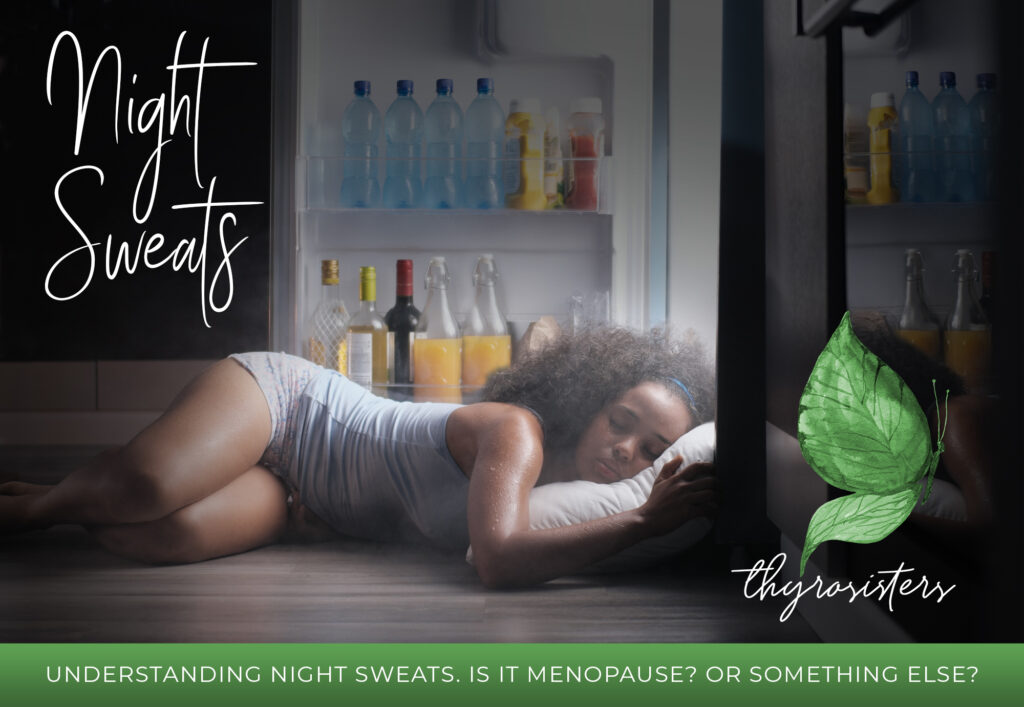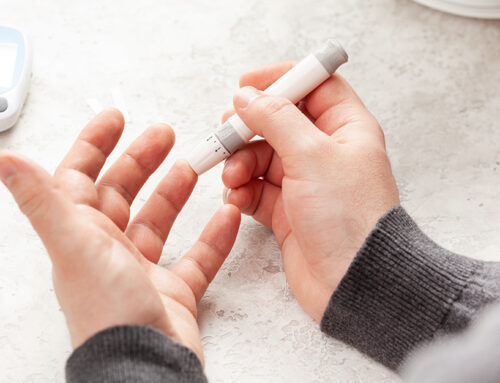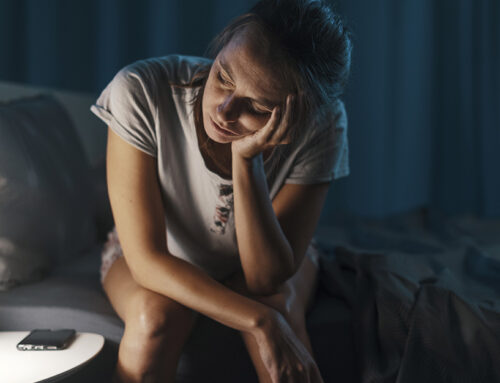Waking up in the middle of the night doused in sweat is no one’s idea of a sweet dream. Night sweats aren’t just uncomfortable, they can also disturb your sleep, leaving you a zombie in the morning. What is making you sweat bullets in your sleep? While menopause is one of the most common causes of night sweats, it isn’t the only one.
Understanding Night Sweats
Night sweats are more than just feeling a little warm at night or sweating because you’re snuggled under a thick blanket. Night sweats are defined by excessive sweating while you sleep, regardless of the room’s temperature. In essence, it can feel like your body’s internal furnace just got cranked to maximum and the heat (and sweat) are pouring out of you.
Night sweats are the night-time version of hot flashes, which are episodes of intense heat that happen during the day. Hot flashes are absolutely no fun and can have you fanning your armpits to get rid of those embarrassing sweat stains or standing in front of an open fridge for a few seconds of relief.
Night sweats aren’t exactly a walk in the park either. First of all, they wake you up, which can mess with your natural sleep cycle. Next, it’s not exactly like you can just roll over and go back to sleep with soaked pajamas and wet sheets. Oftentimes, those who suffer night sweats have to take a shower and switch their pajamas. Some women even switch out their sheets in the middle of the night. No wonder you feel so tired and sluggish in the morning. It probably doesn’t help that your spouse or partner is giving you some serious stink eye for waking them up, too! (Check out 10 Steps to a Better Sleep Routine.)
Is It Menopause?
While night sweats and hot flashes are often attributed to menopause, they’re actually much more likely to occur during “perimenopause” the stage where a woman transitions into menopause, which marks the end of a woman’s reproductive years. Perimenopause can start at different ages but is most common between the ages of 40 and 50. It can last for several years, with a range of symptoms that fluctuate over time. The rollercoaster ride of symptoms is related to the hormones, especially estrogen, that rise and fall in a woman’s body during perimenopause.
According to the Sleep Foundation, roughly 85% of perimenopausal women reported experiencing hot flashes, which likely means they also got an unhappy visit from night sweats as well.
If you are in your 40s or early 50s and experiencing night sweats, the most likely culprit is perimenopause. The good news is that as your body transitions into menopause, your hormone levels will even out, and your symptoms should go away.
What If It Isn’t Menopause?
What if you aren’t in your perimenopausal years and still experiencing night sweats? Then, your icky night sweats may be due to a hormonal imbalance, which could relate to your thyroid.
Your hormones are controlled by your endocrine system. The hypothalamus, a small section in your brain, controls your body temperature. Your hypothalamus knows whether to crank up your internal heating systems and open up the sweat taps to keep you warm based on hormone signals sent by your thyroid. For this reason, the thyroid is often considered the body’s thermostat.
If your night sweats aren’t caused by perimenopause, then another possible culprit is a condition called hyperthyroidism. This is a condition where the thyroid is overactive, releasing too much thyroid in the body. It would be like the thyroid screaming at the hypothalamus – “Turn up the heat!”
In essence, hyperthyroidism causes many of the body’s systems to go into overdrive. Women with hyperthyroidism may experience a rapid and irregular heartbeat, nervousness, increased appetite, weight loss, and a high sensitivity to heat.
Unsurprisingly, many of the symptoms of hyperthyroidism are the opposite of hypothyroidism. Women with hypothyroidism are often sensitive to the cold, feel tired, and struggle with weight gain. However, while night sweats are more commonly associated with hyperthyroidism, I often see many clients with hypothyroidism experiencing night sweats. This may be due to perimenopause.
Hyperthyroidism and Autoimmunity
Hyperthyroidism is often linked to autoimmune conditions (just like hypothyroidism). While hypothyroidism is often caused by Hashimoto’s, hyperthyroidism is more often linked with an autoimmune condition known as Grave’s Disease. The hallmark of Grave’s disease is when antibodies produced by your immune system cause your thyroid to produce too much thyroid hormone.
Hyperthyroidism can also be caused by a condition known as thyroiditis. This condition usually occurs after pregnancy when an existing autoimmune condition causes the thyroid to become inflamed.
The connection between hyperthyroidism and autoimmune diseases means that hyperthyroidism is much more common in women than men (since women are far more likely to suffer from autoimmunity). A family history of autoimmune disorders can put women at a higher risk for either hyperthyroidism or hypothyroidism.
Other Causes of Night Sweats
Perimenopause and hyperthyroidism aren’t the only reasons you could be sweating heavy at night. Certain illnesses and medications can also cause night sweats, including
- Idiopathic hyperhidrosis
- Cancer (most commonly lymphoma)
- Certain bacterial infections
- HIV
- Hypoglycemia
- Antidepressants
- Aspirin and acetaminophen
- Insulin or oral diabetes medications
Check with your doctor to find out if your medical condition or your prescription medication could be causing your night sweats.
Certain other substances can make night sweats worse. In particular, caffeine, alcohol, spicy foods, and sugar are known to spike your body temperature. If night sweats are a problem in your life, one of the first things you should do is to avoid caffeinated drinks, alcoholic drinks, spicy foods, or sugary desserts in the evening and especially right before bed. Saying goodbye to that glass of wine after dinner is worth the benefit of enjoying a full and restful night of sleep.
What Are the Solutions for Night Sweats?
The best protocol for managing or even eliminating your night sweats will depend on the cause of the night sweats. If you are sweating due to a medication you are taking, your doctor may be able to switch your prescription to something you can tolerate a little better. If your night sweats are caused by perimenopause, natural hormonal therapy might help to even out your hormone levels and alleviate your symptoms.
I regularly work with women who are experiencing uncomfortable symptoms related to menopause and perimenopause. When it comes to hot flashes and night sweats in particular, one of my top recommendations is a supplement containing rhubarb extract (yes, the vegetable). A study in the journal Menopause found that rhubarb extract significantly reduced both the frequency and severity of hot flashes in research subjects. I’ve also had great results using rhubarb extract with my own clients.
Test and don’t guess. Get to the root cause of these pesky night sweats. We can find out the “why” by performing the appropriate functional health lab tests. No matter where you live in the US., you can have lab work performed in your hometown, or closest major city. Many functional health kits can be sent to you, and you can collect your sample from the privacy of your own home and then send it directly to the lab.
(Note: If we discover that you have a hyperthyroid condition, I will refer you to your primary care physician, as you may be at risk for a “thyroid crisis,” which is best for your physician to treat.)
Contact me today to schedule a complimentary Clarity Call and to learn more about my functional health treatment protocols.






